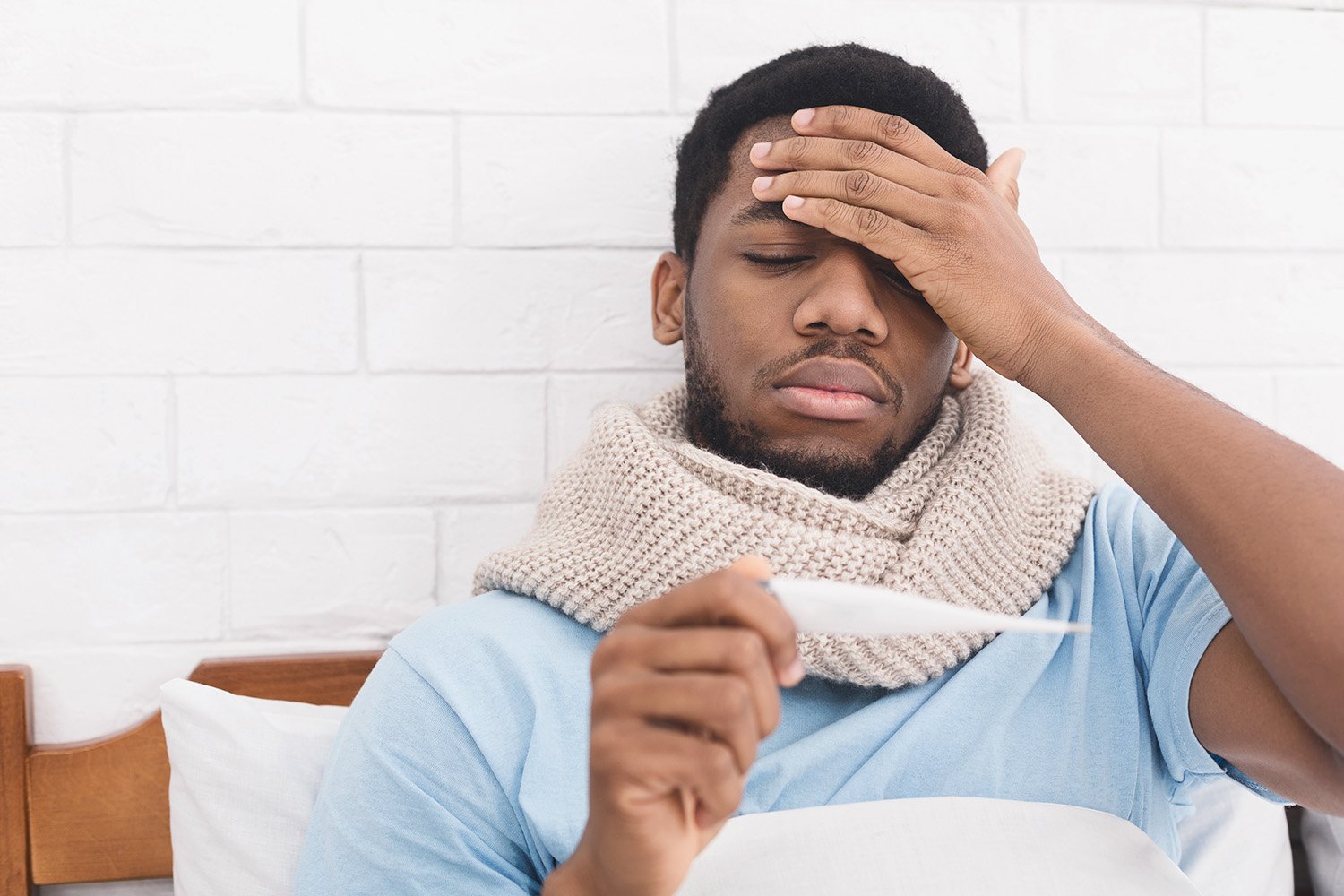Treating Coronavirus at Home
 While some coronavirus (COVID19) may need extensive care from healthcare professionals, most cases don't need hospitalization and symptoms can be treated at home.
While some coronavirus (COVID19) may need extensive care from healthcare professionals, most cases don't need hospitalization and symptoms can be treated at home.
Here are some tips to treat COVD-19 symptoms at home.
If You Have COVID-19
The first and foremost thing you should do is stay home. Even if you haven't tested positive for coronavirus, but have symptoms, you should treat it as if you have coronavirus. If possible, try to socially distance yourselves even from those you live with. If you have to share a bathroom it should be cleaned after each use.
Avoid any visitors to your home. Wear a face mask if you have to be around other people. You can also help prevent the spread of COVID-19 with those in your household by:
- Washing your hands often.
- Coughing into a tissue and throwing it away immediately in a plastic-lined wastebasket.
- Cleaning frequently touched surfaces with disinfectant that kills coronavirus. Some surfaces, such at places in the bathroom, may need cleaning several times a day.
- Don't share personal items, like dishes, towels or bedding. Make sure your clothing and linens are washed thoroughly.
While research is still being conducted on how animals are affected by the virus, the CDC recommends people diagnosed with coronavirus stay away from their pets as well.
Watch for severe symptoms that might require treatment at the hospital. If you develop these symptoms call your doctor:
- Trouble breathing
- Persistent pain or pressure in the chest
- New confusion or can't be woken up
- Lips or face turning blue
If your symptoms are life-threatening you should call 911 or head to the emergency room right away.
Medications to Treat COVID-19
There are currently no over-the-counter medications that can provide immunization to coronavirus, according to the CDC and the World Health Organization. Additionally, because COVID-19 is a viral infection, antibiotics are not effective in treating the virus. See this video to learn more about antibiotic stewardship.
There is good news though! Most people can fight the virus on their own through their immune system. You can treat the symptoms of the virus to help recover as quickly as possible.
If you are generally healthy, your body is likely to feel better after a few days and be totally recovered in about a week from the novel coronavirus. However, you may still be contagious for another week or so, which is why there is a 14-day quarantine recommended for anyone who gets the coronavirus.
Treating Symptoms
Coronavirus has many different symptoms, however, the three main ones are fever, cough, and shortness of breath.
Fever remedies
 If your fever is high, you can take a fever reducer. Acetaminophen is normally what is recommended to reduce a fever for those with coronavirus. Ibuprofen is not recommended to treat COVID-19 as it has shown some unsafe side effects in some patients.
If your fever is high, you can take a fever reducer. Acetaminophen is normally what is recommended to reduce a fever for those with coronavirus. Ibuprofen is not recommended to treat COVID-19 as it has shown some unsafe side effects in some patients.
As with all viral infections, it's important to stay hydrated. Drinking lots of water is recommended to replace the fluids lost with a fever.
Rest! Your body needs energy to fight any virus and coronavirus is no different. Just rest up and let your body do its job.
For a Cough
 Cough medicine can help, but it's important to know which one to take. An expectorant will help for wet coughs and get mucus out. For dry coughs, try a cough suppressant. Cough drops and lozenges can also help soothe a sort throat.
Cough medicine can help, but it's important to know which one to take. An expectorant will help for wet coughs and get mucus out. For dry coughs, try a cough suppressant. Cough drops and lozenges can also help soothe a sort throat.
Additionally warm beverages, like tea or broth can heat up the airways and break up mucus that may be in the back of your throat or upper airway.
Try a teaspoon of honey in hot tea or hot water. A little bit of honey tends to soothe a sore throat. However, children under 1 year old should not try honey.
Breathe in steam. Use a hot shower, humidifier, vaporizer or other means of making steam. It will soothe open your airways, making it easier to breathe.
Eat a frozen treat. The coldness may help numb the pain and soothe your throat if it is sore from coughing.
For Shortness of Breath
Slow down heavy activity. Take slow breaths. Slowing things down can help you start breathing again properly.
Try relaxation or meditation techniques. These will help calm the body and get your breathing more regular. Additionally, having shortness of breath may leave you feeling anxious.
If you have an inhaler, you may need to use it. Always pay attention to how your chest feels and what symptoms your inhaler was prescribed for. Do not use someone else's inhaler – only use one that is prescribed to you. Make sure you disinfect the mouthpiece after every use.
Again, most people are able to fight off the coronavirus at home and do not require hospitalization. Be sure to keep an eye out for serious symptoms that might need more urgent care.`